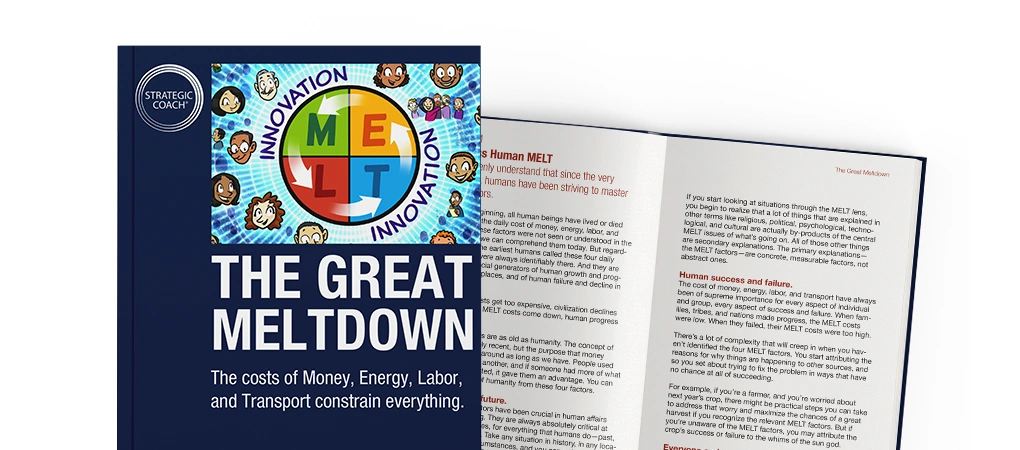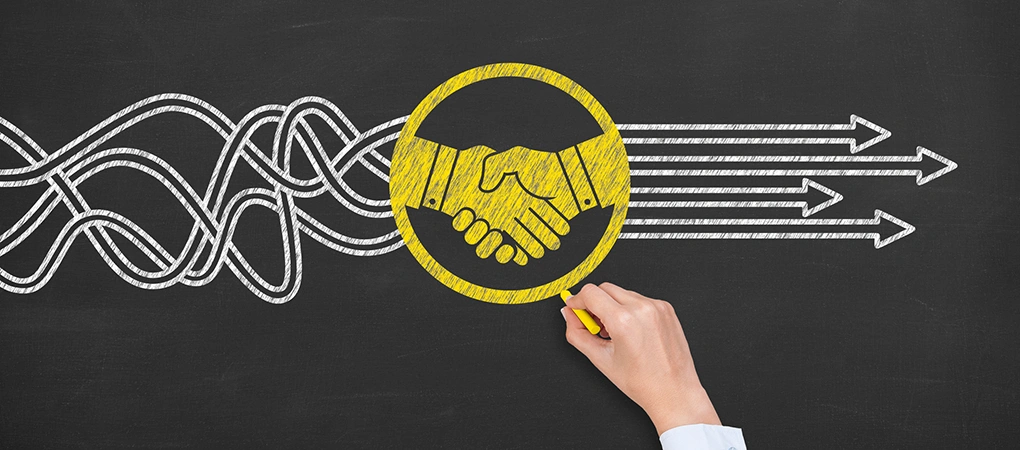The Importance of Time Management for Entrepreneurs (Tips & Tricks)
Dan Sullivan

Do you find it hard to transition between Free Days?
Do you have trouble removing yourself from your business, even for just 24 hours?
Have you had a significant other or friend try to lecture you on the importance of time management?
If so, you’re not alone. As entrepreneurs, we often get so caught up in our work that it becomes difficult to fully detach on days off. I call this phenomenon the “Free Day Flip,” where we’re forced to go from “work mode” to “couch potato mode” overnight. Turns out, that’s easier said than done for entrepreneurs.
The importance of time management and Free Days.
Strategic Coach is unique in that it is one of the only coaching programs for entrepreneurs that truly focuses on the importance of time management. And one of our core principles around time management is the concept of Free Days.
For those who don’t know or who need a refresher, a Free Day is a 24-hour period (from midnight to midnight) where you do absolutely no work. The core purpose of a Free Day is relaxation and rejuvenation.
To the average person, this might seem straightforward. But for entrepreneurs, it poses a challenge. It can be difficult or close to impossible to fully remove yourself from your business for even 24 hours. And while it might seem trivial, the importance of time management for entrepreneurs and Free Days truly cannot be understated.
Contrary to what some entrepreneurs may think, Free Days actually allow you to be more productive with your time overall. I’ve been taking 155 Free Days each year for 30 years, and I find that I am so fresh when I get back to work that I am super productive. I’m able to accomplish far more than I would have if I kept working day in and day out.
(And yes, you read that right—I take 155 Free Days per year. That’s 22 out of 52 weeks of the year, and I get more done each year than I did before I started this routine.)
I’ve also found that Free Days give me perspective on what is truly important and urgent in my business—they allow me to fully realize the importance of time management. Entrepreneurs often feel like everything they’re doing is urgent and necessary. I used to feel that way too, but it’s often untrue.
When I first started Strategic Coach, there was a moment where I had planned to take two weeks off. I wanted to cut it down to one week because I had some work that I needed to finish, but I decided at the last minute to go ahead and take off the full two weeks.
Before I left, I wrote down everything I had planned to do in that one-week time frame on a slip of paper and put it into a folder. I had about 15 things on the list. I left for the two weeks, and when I came back, I realized that almost three quarters of my list was completely irrelevant. I no longer needed to do those activities, they were no longer important, or someone else had done them for me.
That left me with three tasks that I actually had to complete immediately. I got them done that day because I was refreshed and ready to be productive. Taking that extra week off had virtually zero impact on my business and the things I needed to get done.
I could go on about the power of Free Days and the importance of time management for entrepreneurs, but that’s not what this is about. I’d like to discuss two major tips that can help you make the most of your Free Days.
Two rules for effectively taking days off.
The reason entrepreneurs struggle with taking time off is simple: they don’t have a system in place that allows them to comfortably step away from their business, so they feel forced to keep working even on their days off. Whether they think their business will fall apart without them or they don’t want to let their team down, the end result is the same—entrepreneurs simply cannot stop working.
So, the question then becomes, how do you set up a system that allows you to completely remove yourself? And how do you come to truly learn the importance of time management?
There are two general strategies I use that I think will help any entrepreneur reading this.
1. Get clear on what activities need to be completed before you leave.
When I found it hard to take Free Days, I realized it was because I never actually clarified when I was supposed to stop working. I had so many things on my plate and I kept working through them with no clear end in sight. When a Free Day came around, I didn’t feel like I could take it because I was always in the middle of something. This is a classic situation for entrepreneurs.
The first step for any entrepreneur when taking a Free Day is to get clear on what needs to be accomplished before the Free Day.
If you have a goal to accomplish certain activities before you leave, you can relax on your Free Day knowing that you’ve completed everything you set out to accomplish. If you fail to do this, you’ll either never take a Free Day or, if you do, you’ll be thinking about all the things you didn’t finish—and more than likely, you’ll start working on them again.
2. Plan out what you’re going to do on your first day back.
If you implement the first rule, there will still be something in the back of your mind throughout your time off: “What am I going to do when I get back to work?”
Just like you set a goal of activities that need to be completed before you leave, it’s imperative that you plan your first day back before you begin your time off. It doesn’t even matter whether you do those things on your first day back. What matters is that you know there is a plan in place for when you get back to work. This is a tip that will help you realize the importance of time management.
This serves two purposes. First, it allows you to totally free up your mind so you can fully relax and rejuvenate without getting sidetracked about what you should be doing when you get back. Second, it means that when you do come back to work, you’re not starting from zero. It allows you to be incredibly productive when you get back because you can get right into doing instead of trying to decide what you should be doing.
Looking for more guidance on time management for entrepreneurs? Download The Entrepreneur’s Guide to Time Management to learn how to work less while making more money!
Getting into the right mindset.
Another important part about taking time off is getting into the right headspace. Entrepreneurs are always thinking about their businesses, and shutting that off is difficult without a clear strategy.
My strategy is simple: I read fiction. I love reading business-related books just as much as any entrepreneur, but I’ve found it’s best to avoid them on Free Days. They’re just going to get you back into the working mindset.
In particular, I like murder mysteries and stories with some international intrigue. I enjoy authors like Lee Child, Daniel Silva, Jonathan Kellerman, and Michael Connelly because they can rope you in from the first paragraph. There’s no ambiguity, no psychological stuff—it’s just an interesting story that I can get excited about diving into.
During a week of Free Days, I’ll easily get through three or four fiction books.
Creating YOUR schedule as an entrepreneur.
Now, at this point, you may be thinking, “Dan, that’s great for you—but I can’t take 155 days off, and I don’t even like reading fiction books!”
You’re right—what works for me may not work for you. I like certain books and certain settings. You might not want to read on your Free Days, and that’s perfectly fine.
The importance of time management for entrepreneurs is huge, but we all lead vastly different lives with different businesses. As such, you’ll need to do some experimenting to create an approach that works for you.
For some, this can be a constant learning process. Shannon Waller, our Entrepreneurial Team Strategist who has been taking Free Days for years, recently discovered that she needs her Free Days to be completely unscheduled if she wants to truly relax and rejuvenate. And there are many other specific things I do with my Free Days that I failed to mention here because they likely will not apply to everyone.
In the end, you’ll need to find what works for you and understand how you value the importance of time management. I recommend trying some of the methods I’ve described here, but remember that the goal is to simply focus on relaxing and rejuvenating during your time off—and not focus on work.
Good luck.







